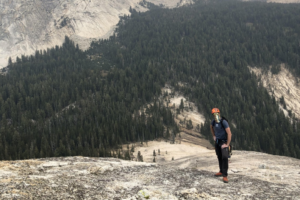
Coronavirus and Climate Change
By James Evans UCLA Health Sustainability Programs Manager My friends and colleagues alike know I spend most of my free time in the mountains rock climbing. This past weekend, in the…

By James Evans UCLA Health Sustainability Programs Manager My friends and colleagues alike know I spend most of my free time in the mountains rock climbing. This past weekend, in the…